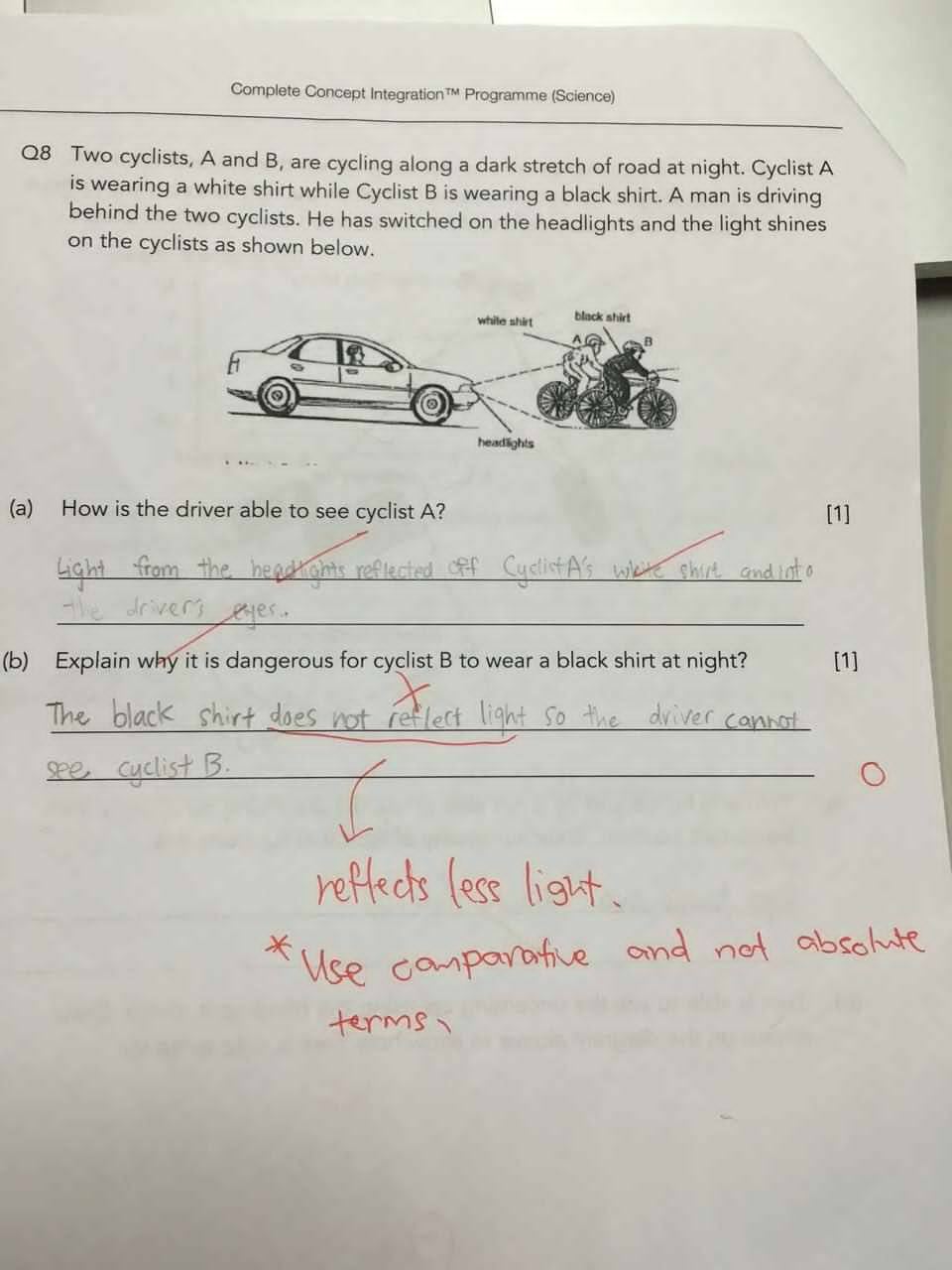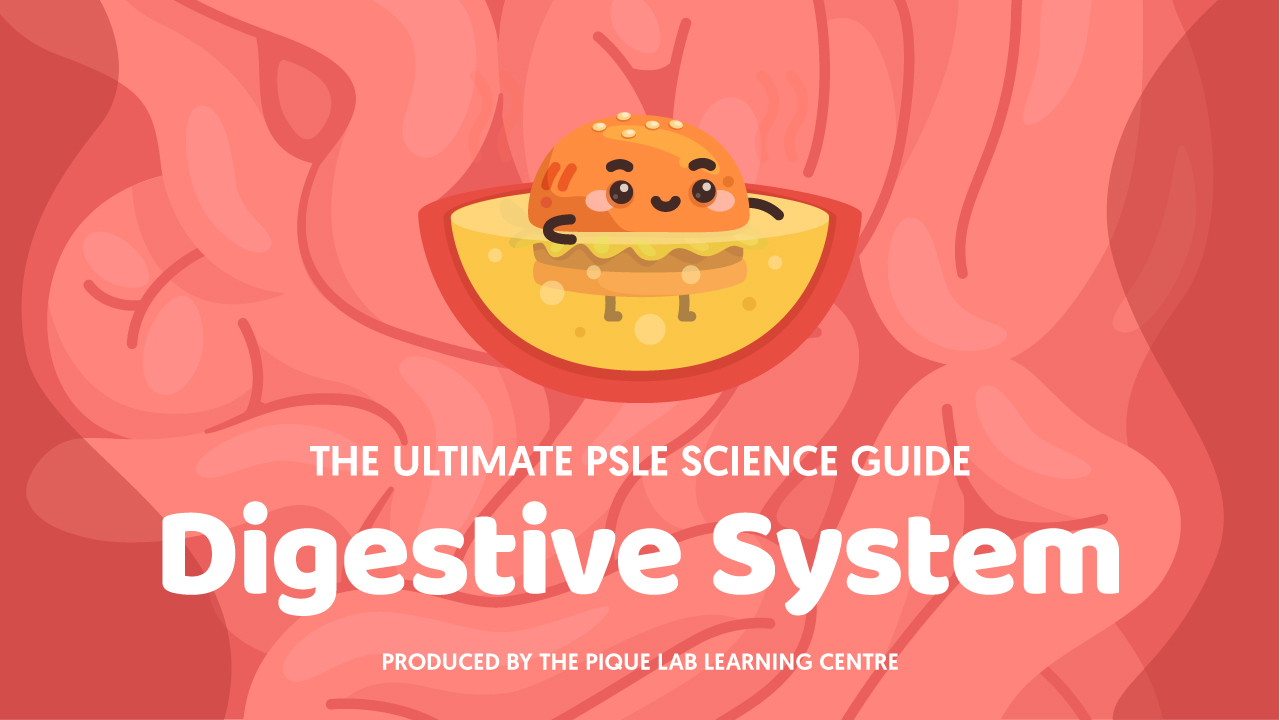Just recently, while I was reviewing the past work collected from my students that have since graduated, I noticed that students tend to use COMPARATIVE & ABSOLUTE terms interchangeably.
Read Also
Question 1

Using the example above, it is not that the black shirt does not reflect light into the driver’s eyes but rather that the black shirt reflects less light (absorbs more light) into the driver’s eyes causing the driver to be able to see the cyclist less clearly.
Question 2
Question: What happens when we cover one side of the leaf with oil?
Student’s Answer: The plant will not be able to photosynthesise to make food and will eventually die.
Suggested Answer: The plant will be able to carry out LESS photosynthesis as the oil blocks SOME of the stomata from taking in carbon dioxide. Thus, the leaves are unable to take in enough carbon dioxide for photosynthesis, causing the plant to make LESS food.
Additional Notes
Some students were also asking when can they use the absolute terms.
We only use absolute terms when the answer is suggested by data.
For instance, if the light sensor reading is “0 lux”. Only then can we suggest that the object does not reflect any light.

If you like our methodology, we’ve some upcoming workshops:







